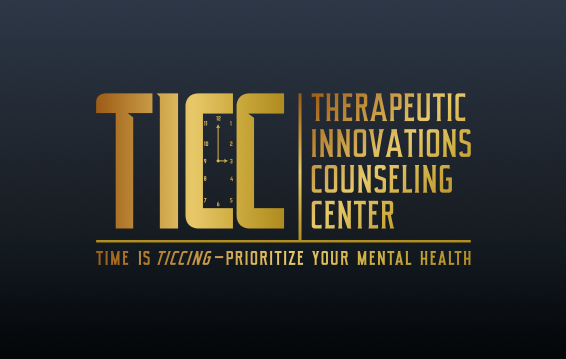 ADHD and the brain
ADHD and the brain
Attention-deficit/hyperactivity disorder (ADHD) is a condition that affects how the brain functions, making it difficult for individuals to focus, control impulses, and stay organized. While it’s commonly diagnosed in childhood, ADHD can continue into adulthood, creating unique challenges for those who live with it. ADHD can impact a person’s schoolwork, job performance, and personal relationships, often leading to frustration, stress, and low self-esteem.
However, ADHD is a manageable condition. With the right combination of treatments and coping strategies, it’s possible to live a productive and fulfilling life. In this blog, we’ll explore what ADHD is, what causes it, what it looks like in adults, and how to cope with the symptoms both at home and in the workplace.
What Is ADHD?
ADHD is a neurological condition that affects the brain’s executive functioning, which controls attention, impulse control, and working memory. People with ADHD may have trouble staying focused, following through on tasks, or controlling their impulses. These difficulties can vary in severity and may show up in different ways depending on the person. There are three types of ADHD:
- Inattentive Type: Individuals with this type of ADHD may seem easily distracted, forgetful, or disorganized. They may struggle with tasks that require sustained focus, like reading or listening.
- Hyperactive-Impulsive Type: This type involves high energy levels and impulsivity. People may fidget, feel restless, or act without thinking. They may interrupt others, have trouble staying still, or talk excessively.
- Combined Type: This is the most common form of ADHD and includes symptoms of both inattentiveness and hyperactivity/impulsivity.
What Causes ADHD?
The exact cause of ADHD is still not fully understood, but research suggests that genetics plays a major role. Studies have shown that ADHD tends to run in families. In addition to genetics, environmental factors may also contribute to the development of ADHD. Exposure to tobacco smoke, alcohol, or drugs during pregnancy, premature birth, and low birth weight are all potential risk factors. Brain injuries or exposure to toxins at a young age may also increase the risk of developing ADHD.
What Is Adult ADHD?
While ADHD is often diagnosed in children, many adults also live with the condition—whether they’ve been diagnosed earlier in life or discovered it later on. For some, ADHD symptoms can lessen with age, while for others, the challenges persist into adulthood. Adult ADHD often looks different than childhood ADHD. In children, hyperactivity may be more visible, while adults may experience more inattentive or organizational difficulties.
Many adults with ADHD struggle with:
- Time management: Trouble keeping track of appointments, deadlines, or tasks.
- Disorganization: Difficulty organizing their home, workspace, or thoughts.
- Forgetfulness: Frequently forgetting important tasks, losing items, or struggling to follow through with plans.
- Restlessness: Feeling an ongoing sense of agitation or fidgeting.
- Emotional regulation: Difficulty managing frustration, impatience, or stress.
What Does Untreated ADHD Look Like in Adults?
When ADHD goes untreated, the challenges can become more pronounced, especially in adulthood when responsibilities like work, finances, and relationships come into play. Untreated ADHD can lead to a range of difficulties, such as:
- Work performance issues: Adults with untreated ADHD may struggle with meeting deadlines, focusing on tasks, or organizing their work. This can lead to underperformance, missed promotions, or job loss.
- Relationship problems: People with ADHD often struggle with communication, follow-through, and forgetfulness, which can create friction in personal relationships. Loved ones may feel ignored or burdened by the unpredictability of ADHD behaviors.
- Low self-esteem: The constant feeling of being “behind” or overwhelmed can lead to negative self-perception, making individuals feel incapable or inadequate, even if they’re highly intelligent or talented.
- Financial challenges: Managing money can be particularly tough for someone with ADHD, leading to missed bill payments, impulsive spending, or debt.
What Are the Symptoms of Adult ADHD?
Adult ADHD symptoms can vary from person to person but typically include:
- Inattention: Trouble concentrating, getting easily distracted, struggling to complete tasks.
- Disorganization: Losing track of items, poor time management, cluttered workspaces.
- Forgetfulness: Frequently forgetting appointments, deadlines, or tasks.
- Restlessness: Feeling fidgety, restless, or unable to relax.
- Impulsivity: Making decisions without thinking, interrupting others, or engaging in risky behaviors.
- Emotional dysregulation: Difficulty managing emotions, feeling easily frustrated or overwhelmed.
These symptoms can make daily life feel chaotic and overwhelming, but there are many strategies to help manage ADHD both at home and in the workplace.
How to Cope with ADHD at Home
Managing ADHD at home requires developing systems and strategies to stay organized and focused. Here are some tips to help cope:
- Create a daily routine: Establish a set schedule for your day. Use alarms, reminders, or planners to help you stick to it.
- Declutter your space: Keep your living area organized by minimizing clutter and designating places for important items like keys, wallets, and paperwork.
- Use lists and reminders: Writing down tasks, using a calendar, or setting up alerts on your phone can help you remember important events and deadlines.
- Break tasks into smaller steps: Instead of getting overwhelmed by a big project, break it into smaller, manageable steps, and focus on one at a time.
- Minimize distractions: Reduce distractions by turning off notifications, using noise-canceling headphones, or creating a quiet space for work or important tasks.
Coping with ADHD in the Workplace
ADHD can create unique challenges in the workplace, but there are several strategies to help improve focus and productivity:
- Prioritize tasks: Start with the most important tasks of the day. Break large projects into smaller steps and focus on completing one step at a time.
- Use organizational tools: Use tools like planners, to-do lists, or project management apps to keep track of deadlines and responsibilities.
- Take short breaks: Taking regular, short breaks can help you stay focused. Set a timer to remind yourself when to work and when to take a break.
- Ask for accommodations: If possible, talk to your employer about accommodations that may help, like flexible deadlines or the ability to work in a quieter space.
- Limit distractions: In a busy office environment, distractions can be everywhere. Try to limit them by wearing headphones, finding a quieter space to work, or scheduling focused work time.
Treatment Brings Hope
While living with ADHD can be challenging, it’s important to remember that there are effective treatments available. Cognitive-behavioral therapy (CBT) can help individuals develop coping strategies for managing their symptoms. Medication, such as stimulants or non-stimulants, may also be recommended by a healthcare provider to help improve focus and control impulsivity.
With the right combination of therapy, medication, and self-management techniques, people with ADHD can learn to manage their symptoms, build self-confidence, and thrive both at home and in the workplace. ADHD may present lifelong challenges, but it’s possible to develop the skills and strategies needed to live a fulfilling and successful life.
If you suspect you may have ADHD or are struggling with symptoms, don’t hesitate to seek support. There is hope, and help is available.
If you or someone you know is struggling with ADHD symptoms, it’s never too late to seek help. Professional support can make a significant difference in managing ADHD, whether it’s through therapy, medication, or developing new strategies for daily life.
Ready to take the first step towards better focus and a more balanced life? Book an appointment today and begin your journey towards managing ADHD and improving your well-being.

